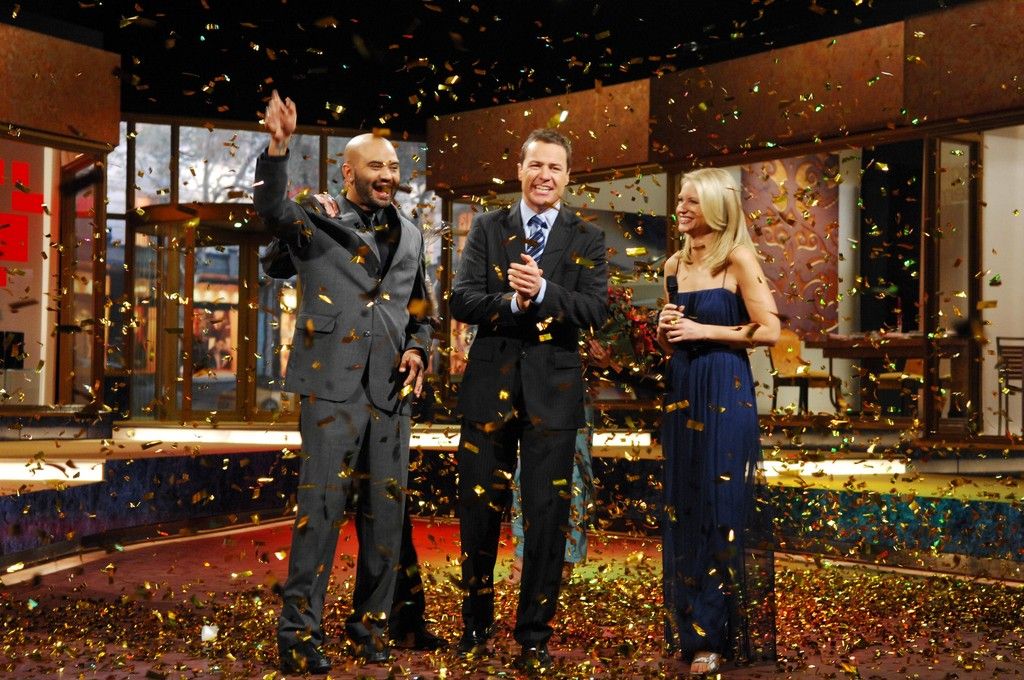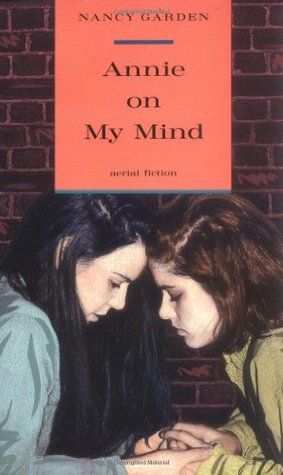 From the Vault
From the Vault
On Winning And Losing
This is a Writers' Other Jobs piece by Sunil Badami, who won the game show Temptation. Like lots of writers, I’ve had more ...
Read MoreThis is a 'The Book That...' post from Eli Glasman. Eli Glasman's debut novel, T
This is a 'The Book That...' post from Eli Glasman. Eli Glasman's debut novel, The Boy's Own Manual to Being a Proper Jew (Sleepers Publishing), about a homosexual boy in the Melbourne orthodox Jewish community, is available in both soft cover and as ebook from all good Australian bookstores and the usual places online. The Sleepers Publishing Website (link here), is a great place to grab it, as it has links to other places online - such as Kobo, AppleiBook, Kindle and Barnes and Noble, as well as option to purchase the softcover copy overseas.
by

I’ve read a fair few Young Adult novels in my life, especially middle grade fiction, like Goosebumps - I swear I must have borrowed every one of those books from the library when I was in school.
Writing one, though, is obviously much more of a challenge and, like any writer, I had fears about writing in a genre I’d only tackled a couple of times in short story form.
Before I started writing my book, I was anxious and I wanted to ‘manufacture marketability’, adopting a lot of the misconceptions about the Young Adult genre that I think a lot of people have – that the writing needs to be ‘dumbed down’, that there needs to lots of violence and sex and that the plot needs to change half way down every page to keep the reader’s attention.
I read a few books in the genre in which I felt the writer had worked with these ideas in mind and the books, to me, were emotionally alienating and disinteresting. The teenage characters were often portrayed as ‘over-angsty’ and, frankly, a little bit dumb, but often with sexual experience far beyond their age. It felt like the characters were being constructed to allow for lots of sex and conflict in situations that characters with an ounce of maturity would simply resolve.
I realised that I didn’t want to talk down to my readers, or portray teenagers as stupid or immature. As a seventeen year old, I was dealing with challenges far greater than I face today. And many of the feelings I had at the time were as mature as the feelings I have now. I decided that if I just wrote a book that I would find interesting and challenging, I could trust in the sophistication of a teenage audience who would, hopefully, if I did a good job, find it equally as engaging.
When I had the idea for my novel, which is about a homosexual boy in the Melbourne orthodox Jewish community, I began to read books that portrayed LGBTQI teens.
Out of the books I read, one novel that I felt treated teenage characters with the respect I hoped to use in my own novel was Annie On My Mind, by Nancy Garden. It’s a romantic story about two teenage girls named Liza and Annie. Written in 1982, the story is as relevant and relatable today as it was then. Garden allowed her prose to breathe, taking time with her description and, more importantly, taking time in introducing the characters.
There’s a fantastic chapter in the beginning of the book where Liza and Annie meet in a museum and have a mock fight with imaginary swords. Here the writer establishes a sense of fun and introduces the use of endearing nicknames that each character uses for the other. Later in the book, these nicknames are used to heartbreaking effect.
The responses from her friends and family when Liza finally comes out as a lesbian are extremely realistic. Garden makes sure that each character is shown with compassion and love, so as not to create any one-dimensional ‘bad guys’. Because of this approach, the book’s central conflict, (the emotional ramifications of Liza coming out as a lesbian), is grounded in honest human emotion.
The book also shows the importance of following through with the conflict that is established in the opening chapters.
I read some queer teen literature, where the writer established a plot in which the protagonist was hiding their sexual orientation and there was a culture of antagonism towards homosexuality, but then the writer never followed through with the protagonist coming out to those closest to them.
I felt that this was half-arseing the job a bit. In Annie On My Mind, Garden follows through with the conflict she establishes and has Liza come out to her family and friends. She handles it with subtlety, honesty and keen insight. What I learned from reading this moment in the novel, was that the peripheral character’s reactions to the protagonist coming out of the closet is the most important part of a novel exploring this subject matter.
One of the functions of fiction like this is to explore difficult situations we may face in our own lives. It’s why fiction can sometimes be so cathartic and comforting to read.
It took me seven months to write my book. A lot of that time was spent getting to know the characters, humanizing them, building them up as three dimensional people, so that I could write authentic reactions to when Yossi, the main character, comes out of the closet.
And seeing how well it was done in novels like Annie On My Mind, certainly helped guide me in how to tackle this very delicate and important moment in the novel.

Eli Glasman's debut novel, The Boy's Own Manual to Being a Proper Jew (Sleepers Publishing), about a homosexual boy in the Melbourne orthodox Jewish community, is available in both soft cover and as ebook from all good Australian bookstores and the usual places online. You can check out his website here (https://eliglasman.com/) and his twitter here (https://twitter.com/eliglasman?lang=en).
 From the Vault
From the Vault
This is a Writers' Other Jobs piece by Sunil Badami, who won the game show Temptation. Like lots of writers, I’ve had more ...
Read More The Book That
The Book That
This is a The Book That... post from award-winning Indigenous Australian writer Ellen van Neerven. You can check out her website here, ...
Read More From the Vault
From the Vault
This is a Writers' Other Jobs piece from author, journalist, short fiction writer and lecturer Meg Mundell. You can find her on twitter her ...
Read More